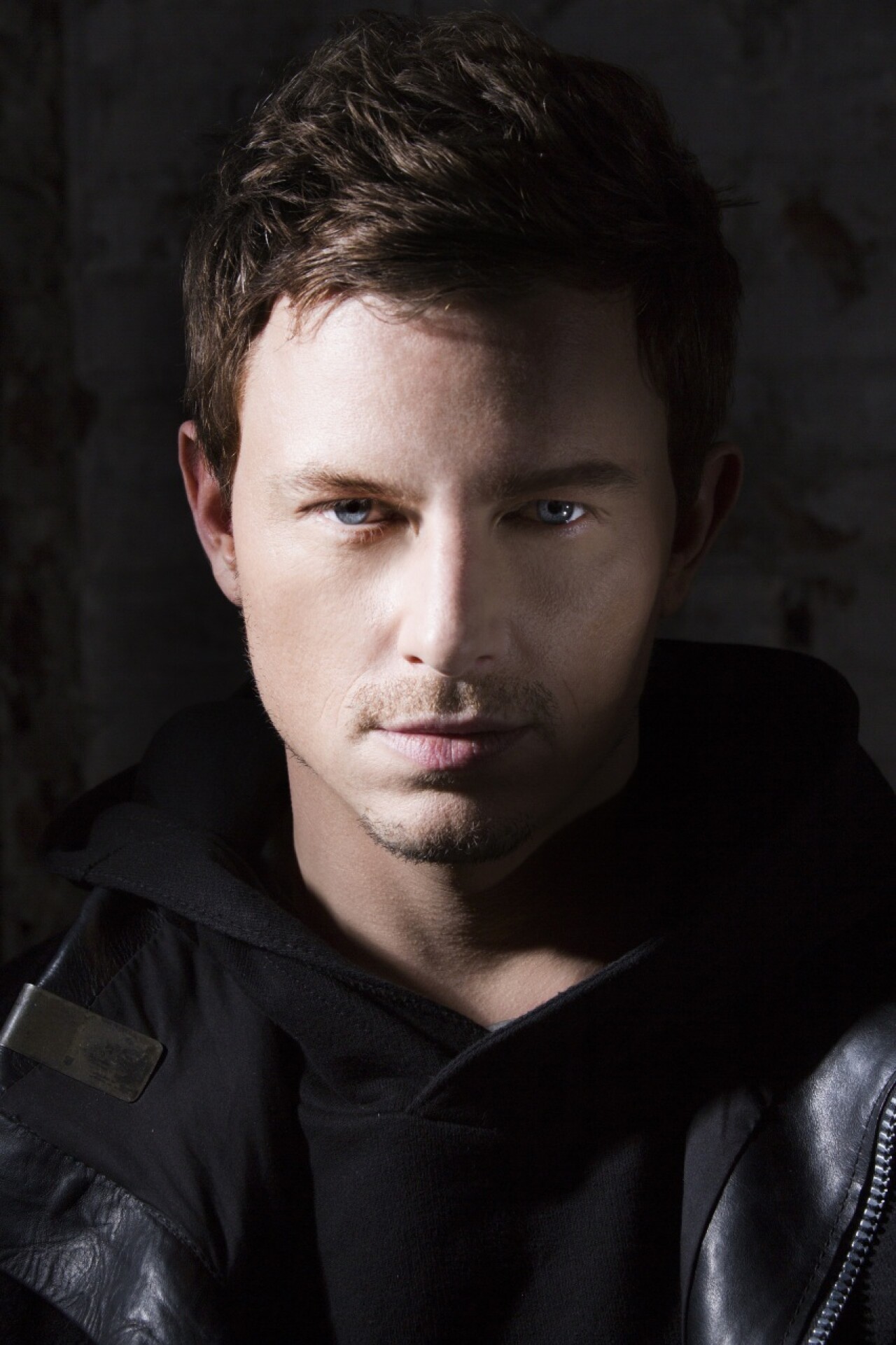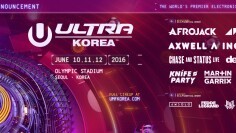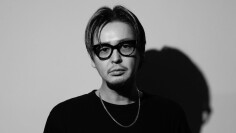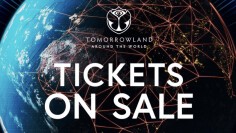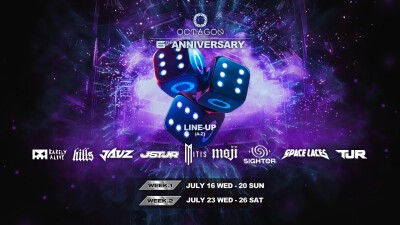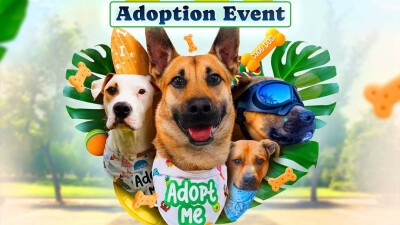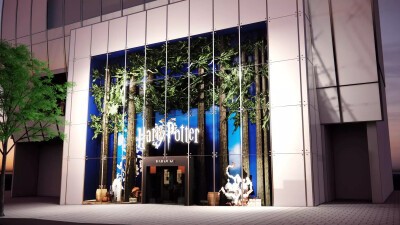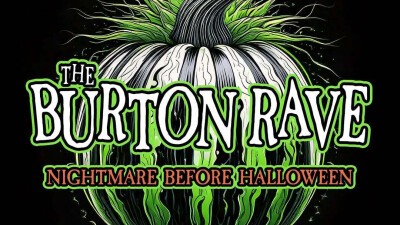It's been less than a year since ULTRA JAPAN and Fedde Le Grand is back in Tokyo helping to kickoff the PACHA MUSIC FESTIVAL 2016 and promoting his latest album, 'Something Real.' We caught up with him at the Sony Music offices where we learned the secret to finding great talent and gained some perspective on the ever-evolving dance music scene.
Welcome back to Japan! It’s great to have you back. Starting off, how do you feel about your Japanese fans?
"I think, in total, it's the 5th time I'm here. It's especially great for us because we've seen the scene grow so fast and so much. The first time I came here I mainly did clubs and then most other DJs were the German underground guys. Now it's more diverse and there's a real scene, a big scene, out here. Being from Europe, where it's been there for so long, it's great to see it grow from that very underground scene here, to now a raver thing. It's kind of like reliving it all again and again."
Do you get any free time while you’re here? Where do you like to go? What do you enjoy doing?
"We are a small crew so food is a big thing. Shabu Shabu is my favorite Japanese food. Because I'm not such a big fish fan, which is kind of a problem here sometimes. I'll try anything though, it's just fish, we usually don't get along. My manager has the key to every city in the world for food so we try out something different each time. I think it's a great thing about travelling in general."
How do you feel about the music scene in Japan?
"I think its extremely healthy, professionally speaking. People really commit here to dance music full-on and as an artist there is nothing more you can want. There's just nothing better if your fans know all the songs, they know everything, and their dressed up for it, because then it becomes more like a movement."
Are there any Japanese artists you like in particular?
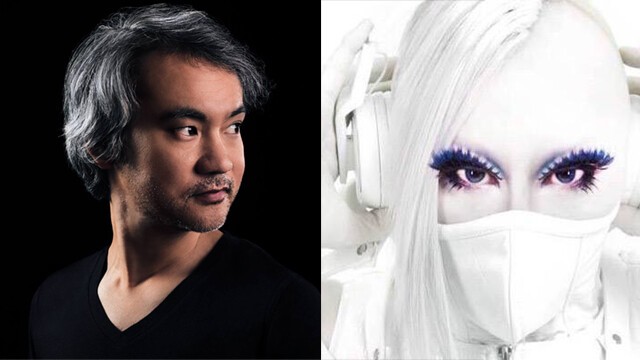
"I just don't know enough to be really honest. There is a Hardstyle DJ who used to be huge in Holland, Yoji, and Satoshi Hitomi."
You’ve travelled to play at so many festivals around the world. What is your favorite so far?
"That's like asking 'Who's your favorite person in your family?' It's just really hard to compare."
OK, let's make it fair. What is the most memorable one?
"You have good memories for so many different reasons. Sometimes it can be a really small venue but your set just comes together and sometimes it can be just one person who is so into the music that he entertains you the whole entire night, just by himself. Or sometimes it's something really impressive. I did my own show in Holland ("Grand Show") so that's something I'm really proud of. So that's why there are so many different reasons and feelings to like something. I do like Exit very much. That's probably one of my favorites in Europe, as an all-around festival, like a European Coachella. The setting is so great being in a very old fortress and there are lots of very interesting and weird local things going on."
Going back to your roots, this marks the 10 year anniversary of ‘Put Your Hands Up For Detroit.’ Did the early Detroit scene have an influence on your music?
"When I just started playing I was only interested in Jeff Mills, Carl Cox, not necessarily of Detroit but speaking of the techno guys. I could just sit there and watch them for hours. Observe their whole technique, how they did it, with four decks and drum machines. I would think, 'Man, there is so much to learn.' In that way, actually, the techno scene in general has been very important to me and still is because when I want to get inspiration I go to those stages because I already know what is going on in my own part of the scene.
But it's two different things. From a purely musical perspective, if something is beat driven from a musical and programming angle its not that interesting to make. It's great to play, but it's not that interesting to make because there's not that many melodies and it's very loop-based so it's not a very technical or musical from a producer's point of view. So from a producers point of view, no, from a DJ's point of view, yes."
We listened to your new album and it’s a very different style to your previous singles. It’s also your first studio album since the release of 'Output' in 2009 and a majority of the songs are collaborations with featured artists. Who was your favorite person to work with and why? Maybe there is some kind of “studio episode” you can share with us?
"The Kepler guys, who did 'The Noise' because they just hit it. We never changed anything. They just came back with this vocal, as is, and to not have to send it back for further modifications never happens. It's this little collective of four guys. I had never met them before. The whole thing was online at first and then I met them later when I was in America."
What is the meaning behind the album name ‘Something Real?’
"First of all, it's part of the lyrics of 'Give Me Some,' the first track, so that kind of made sense. But also an album for me is always something that you don't have to consider all these things like intro beats or outro beats, it's not necesary to have a certain length for the track, and it doesn't always have to work on the dance floor. So there are many things you can let go of for an album. I can approach it from a strictly musical point of view and not necessarily know that it has to work on the dancefloor or in a certain scene with some group of people. Throw all the extra baggage out of the window and what automatically comes out is 'You'."
What did you learn when making this album?
"The album is something that came together over time. You constantly make music throughout the year but every now and then you make something or you get a vocal that is really cool or really special for whatever reason. For instance, 'Immortal' with irine, it's 100bpm but if you speed it up it's just gone, because it just sounds so un-natural. So I couldn't really use that for a normal release because people expect it to be on Beatport and to be able to download and play, because that's the usual order. So I saved up all these little gems and then I pick and choose and get extra stuff in a very extensive process. In the end I mainly go all over the pieces to see if everything is up to date and that's how it came all together."
Japanese fans can relate a lot to ‘Cinematic.’ It was used as the theme track for the first ever official aftermovie of Ultra Japan and it’s also the lead track for the Japanese Edition. How did that feel?
"Cinematic- I think it's great! Denny has amazing vocals. He has a standard demo thing, him on guitar, and I fell in love with it right away. It was such a great upbeat feel and something about it makes you instantly happy."
"He is an upbeat, quirky, little guy. It's a proper song structure but it just works and people, just got it right away, even if they thought they already knew it but didn't. I remember at Ultra where the crowd was trying to say the words although they couldn't and you know it was just an instant moment."
How did you get in touch with Denny?
"In this case it was via my publisher, who we have been with for so long. He's also been in the music scene for a very, very, long time. He's very old but such a traveller so some how he knows everyone, which is interesting. In the end, Denny sent 5 songs to me and this one ('Cinematic') was the immediate one that came by."
You put a lot of effort in creating and supporting new talent. You’ve mentioned upcoming artists such as Merk & Kremont and Jewelz & Sparks who are on your album too. How do you come about finding new talent and vocalists to feature on your tracks?
"I think that's the great thing now; they actually find me. The only thing I have to do is recognize what they do. Unfortuantaly, I wish I could, but I can't get back to everyone because I get at least 500 a day. But I really try to get through all of them in about two days."
"Sometimes it can take a while, for instance Jewels & Sparks's demo was sitting in my dropbox for half a year because with tour schedules there's just not enough time. But now that they are doing pretty well. And same with Nicky Romero, he sent me a track via my website, a remix of Groove Armada's 'My Friend.' We got in touch with him and found out he lived in Holland from the city I was from and that's how we became friends."
How does the sound stand out of all these demos?
"People who have their own sound, that's for sure, but I check it in two ways. First I look at the email and look for the words such as 'Demo' or if it's still ok to sign or if it comes for an old label. If it comes from an old label I would think if I want to play it on radio or live, but I would take more time if it's a demo and signable, of course, because if it's from an established label or if the mixing quality is not there I will skip it right away. If it's not something I play I skip it right away so it generally goes quite fast. But the hardest part is clicking the link and having it play because as you know some countries don't have the best internet.. (laughs) Like islands takes a long time but in the end it's worth the effort."
We love the first track of your album ‘Give Me Some’ which was a joint project with Merk & Kremont. How did that happen and how do you work on a track with other artists?
"Merk and Kremont, I've known them really long time. They sent me the initial idea for a track and I thought some elements were cool and not so I sent them my version. We'd exchange all these changes via Dropbox, they change something, I change something back and forth. It's possible sometimes to collaborate without meeting the actual person. "
This album features a lot of vocalists. Do you think that non-vocal tracks and vocal tracks have a different energy to it? What do you think is special about tracks with vocals?
"It's more for an album. Expect for one track that was sample based, I wanted to mainly focus on the vocals."
"I consider an album more for doing something like driving your car or cleaning the house. It doesn't necessarily have to be functional because for something functional it's way harder to get in vocals as it's hard to get into instantly because people usually have to listen to it a few times for it to sink in. But for an album, it's something to enjoy all settings except a dance floor so I think it would be appropriate listening value helps with vocals."
If somebody had to listen to one of those songs as an entry which one you recommend?
"'Give Me Some' or 'Cinematic'. "
Why?
"Because they really are personal favorites and I would actually say both because they seem far apart but yet they are not because they are both funky- soul."
Are you excited to play your tracks on the album in front of your fans in Japan at Pacha tomorrow?
"I wont be playing the whole album because it's not simple. I generally play quite a lot and i think the Japanese crowd has already heard three songs before from Ultra last year but at the time they didn't know it."
How do you pick your tracks?
"That's why it's great to do club shows in between as it's easier to be experimental. But sometimes you have to do it, to take the risk, or otherwise you can never find how people react. And sometimes it's dead wrong so you have to change the whole track, but you know after so many years you make it for the dance floor and know that they are gonna react like this."
Welcome back to Japan! It’s great to have you back. Starting off, how do you feel about your Japanese fans?
"I think, in total, it's the 5th time I'm here. It's especially great for us because we've seen the scene grow so fast and so much. The first time I came here I mainly did clubs and then most other DJs were the German underground guys. Now it's more diverse and there's a real scene, a big scene, out here. Being from Europe, where it's been there for so long, it's great to see it grow from that very underground scene here, to now a raver thing. It's kind of like reliving it all again and again."
Do you get any free time while you’re here? Where do you like to go? What do you enjoy doing?
"We are a small crew so food is a big thing. Shabu Shabu is my favorite Japanese food. Because I'm not such a big fish fan, which is kind of a problem here sometimes. I'll try anything though, it's just fish, we usually don't get along. My manager has the key to every city in the world for food so we try out something different each time. I think it's a great thing about travelling in general."
How do you feel about the music scene in Japan?
"I think its extremely healthy, professionally speaking. People really commit here to dance music full-on and as an artist there is nothing more you can want. There's just nothing better if your fans know all the songs, they know everything, and their dressed up for it, because then it becomes more like a movement."
Are there any Japanese artists you like in particular?

"I just don't know enough to be really honest. There is a Hardstyle DJ who used to be huge in Holland, Yoji, and Satoshi Hitomi."
You’ve travelled to play at so many festivals around the world. What is your favorite so far?
"That's like asking 'Who's your favorite person in your family?' It's just really hard to compare."
OK, let's make it fair. What is the most memorable one?
"You have good memories for so many different reasons. Sometimes it can be a really small venue but your set just comes together and sometimes it can be just one person who is so into the music that he entertains you the whole entire night, just by himself. Or sometimes it's something really impressive. I did my own show in Holland ("Grand Show") so that's something I'm really proud of. So that's why there are so many different reasons and feelings to like something. I do like Exit very much. That's probably one of my favorites in Europe, as an all-around festival, like a European Coachella. The setting is so great being in a very old fortress and there are lots of very interesting and weird local things going on."
Going back to your roots, this marks the 10 year anniversary of ‘Put Your Hands Up For Detroit.’ Did the early Detroit scene have an influence on your music?
"When I just started playing I was only interested in Jeff Mills, Carl Cox, not necessarily of Detroit but speaking of the techno guys. I could just sit there and watch them for hours. Observe their whole technique, how they did it, with four decks and drum machines. I would think, 'Man, there is so much to learn.' In that way, actually, the techno scene in general has been very important to me and still is because when I want to get inspiration I go to those stages because I already know what is going on in my own part of the scene.
But it's two different things. From a purely musical perspective, if something is beat driven from a musical and programming angle its not that interesting to make. It's great to play, but it's not that interesting to make because there's not that many melodies and it's very loop-based so it's not a very technical or musical from a producer's point of view. So from a producers point of view, no, from a DJ's point of view, yes."
We listened to your new album and it’s a very different style to your previous singles. It’s also your first studio album since the release of 'Output' in 2009 and a majority of the songs are collaborations with featured artists. Who was your favorite person to work with and why? Maybe there is some kind of “studio episode” you can share with us?
"The Kepler guys, who did 'The Noise' because they just hit it. We never changed anything. They just came back with this vocal, as is, and to not have to send it back for further modifications never happens. It's this little collective of four guys. I had never met them before. The whole thing was online at first and then I met them later when I was in America."
What is the meaning behind the album name ‘Something Real?’
"First of all, it's part of the lyrics of 'Give Me Some,' the first track, so that kind of made sense. But also an album for me is always something that you don't have to consider all these things like intro beats or outro beats, it's not necesary to have a certain length for the track, and it doesn't always have to work on the dance floor. So there are many things you can let go of for an album. I can approach it from a strictly musical point of view and not necessarily know that it has to work on the dancefloor or in a certain scene with some group of people. Throw all the extra baggage out of the window and what automatically comes out is 'You'."
I can approach it from a strictly musical point of view and not necessarily know that it has to work on the dancefloor.
What did you learn when making this album?
"The album is something that came together over time. You constantly make music throughout the year but every now and then you make something or you get a vocal that is really cool or really special for whatever reason. For instance, 'Immortal' with irine, it's 100bpm but if you speed it up it's just gone, because it just sounds so un-natural. So I couldn't really use that for a normal release because people expect it to be on Beatport and to be able to download and play, because that's the usual order. So I saved up all these little gems and then I pick and choose and get extra stuff in a very extensive process. In the end I mainly go all over the pieces to see if everything is up to date and that's how it came all together."
Japanese fans can relate a lot to ‘Cinematic.’ It was used as the theme track for the first ever official aftermovie of Ultra Japan and it’s also the lead track for the Japanese Edition. How did that feel?
"Cinematic- I think it's great! Denny has amazing vocals. He has a standard demo thing, him on guitar, and I fell in love with it right away. It was such a great upbeat feel and something about it makes you instantly happy."
That's my job as a producer: to emphasize what is already there.
"He is an upbeat, quirky, little guy. It's a proper song structure but it just works and people, just got it right away, even if they thought they already knew it but didn't. I remember at Ultra where the crowd was trying to say the words although they couldn't and you know it was just an instant moment."
How did you get in touch with Denny?
"In this case it was via my publisher, who we have been with for so long. He's also been in the music scene for a very, very, long time. He's very old but such a traveller so some how he knows everyone, which is interesting. In the end, Denny sent 5 songs to me and this one ('Cinematic') was the immediate one that came by."
You put a lot of effort in creating and supporting new talent. You’ve mentioned upcoming artists such as Merk & Kremont and Jewelz & Sparks who are on your album too. How do you come about finding new talent and vocalists to feature on your tracks?
"I think that's the great thing now; they actually find me. The only thing I have to do is recognize what they do. Unfortuantaly, I wish I could, but I can't get back to everyone because I get at least 500 a day. But I really try to get through all of them in about two days."
I can hear in just a few seconds if it might go somewhere or not. That's how I found Nicky Romero, Dennis Call, Jewels & Sparks so many other guys.
"Sometimes it can take a while, for instance Jewels & Sparks's demo was sitting in my dropbox for half a year because with tour schedules there's just not enough time. But now that they are doing pretty well. And same with Nicky Romero, he sent me a track via my website, a remix of Groove Armada's 'My Friend.' We got in touch with him and found out he lived in Holland from the city I was from and that's how we became friends."
How does the sound stand out of all these demos?
"People who have their own sound, that's for sure, but I check it in two ways. First I look at the email and look for the words such as 'Demo' or if it's still ok to sign or if it comes for an old label. If it comes from an old label I would think if I want to play it on radio or live, but I would take more time if it's a demo and signable, of course, because if it's from an established label or if the mixing quality is not there I will skip it right away. If it's not something I play I skip it right away so it generally goes quite fast. But the hardest part is clicking the link and having it play because as you know some countries don't have the best internet.. (laughs) Like islands takes a long time but in the end it's worth the effort."
We love the first track of your album ‘Give Me Some’ which was a joint project with Merk & Kremont. How did that happen and how do you work on a track with other artists?
"Merk and Kremont, I've known them really long time. They sent me the initial idea for a track and I thought some elements were cool and not so I sent them my version. We'd exchange all these changes via Dropbox, they change something, I change something back and forth. It's possible sometimes to collaborate without meeting the actual person. "
This album features a lot of vocalists. Do you think that non-vocal tracks and vocal tracks have a different energy to it? What do you think is special about tracks with vocals?
"It's more for an album. Expect for one track that was sample based, I wanted to mainly focus on the vocals."
An album should be very high in listening value.
"I consider an album more for doing something like driving your car or cleaning the house. It doesn't necessarily have to be functional because for something functional it's way harder to get in vocals as it's hard to get into instantly because people usually have to listen to it a few times for it to sink in. But for an album, it's something to enjoy all settings except a dance floor so I think it would be appropriate listening value helps with vocals."
If somebody had to listen to one of those songs as an entry which one you recommend?
"'Give Me Some' or 'Cinematic'. "
Why?
"Because they really are personal favorites and I would actually say both because they seem far apart but yet they are not because they are both funky- soul."
Are you excited to play your tracks on the album in front of your fans in Japan at Pacha tomorrow?
"I wont be playing the whole album because it's not simple. I generally play quite a lot and i think the Japanese crowd has already heard three songs before from Ultra last year but at the time they didn't know it."
How do you pick your tracks?
"That's why it's great to do club shows in between as it's easier to be experimental. But sometimes you have to do it, to take the risk, or otherwise you can never find how people react. And sometimes it's dead wrong so you have to change the whole track, but you know after so many years you make it for the dance floor and know that they are gonna react like this."
I'd say it should be helping you not dictating you.
